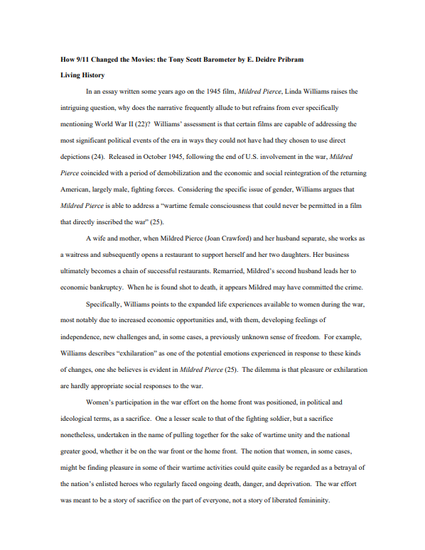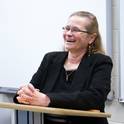
In an essay written some years ago on the 1945 film, Mildred Pierce, Linda Williams raises the intriguing question, why does the narrative frequently allude to but refrains from ever specifically mentioning World War II (22)? Williams’ assessment is that certain films are capable of addressing the most significant political events of the era in ways they could not have had they chosen to use direct depictions (24). Released in October 1945, following the end of U.S. involvement in the war, Mildred Pierce coincided with a period of demobilization and the economic and social reintegration of the returning American, largely male, fighting forces. Considering the specific issue of gender, Williams argues that Mildred Pierce is able to address a “wartime female consciousness that could never be permitted in a film that directly inscribed the war.”
Available at: http://works.bepress.com/deidre-pribram/45/
